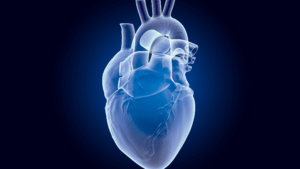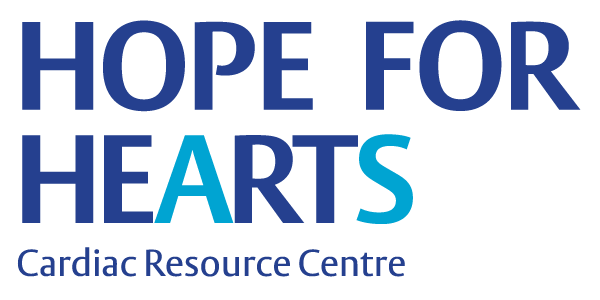We often associate heart disease with older adults, but it can also affect children and young people.
Heart disease in children refers to a range of congenital or acquired conditions that affect the structure or function of the heart. Understanding the causes, symptoms, and care for paediatric heart disease is crucial for early detection and effective management.
Types of Heart Conditions
A wide variety of serious heart conditions can affect children and young people.
Congenital heart defects are structural abnormalities present at birth. These can include issues with the heart valves, septum, or blood vessels. While the exact causes are often unknown, factors like genetic conditions, maternal health, and environmental influences may contribute. Many cardiac abnormalities present at birth and may be treated in the first few days of life. Early signs may include poor feeding, bluish skin, or difficulty breathing.
Arrhythmias refer to irregular heart rhythms. Children can experience a variety of arrhythmias, such as bradycardia (slow heart rate) or tachycardia (fast heart rate). Symptoms may range from dizziness and palpitations to fainting spells, some symptoms may be benign but other symptoms are sentinel events that may indicate a more serious cardiac condition. In some cases, arrhythmias can be managed with medications, while others may require specialised interventions like cardiac ablation.
Cardiomyopathies (also referred to as an enlarged heart) is a condition that affects the heart muscle, leading to weakened pumping ability. These can be genetic or acquired, caused by infections or certain medications. Symptoms may include fatigue, shortness of breath, and swelling in the extremities. Treatment may involve medications, lifestyle modifications, or, in severe cases, cardiac surgery to rectify a structural abnormality and heart transplantation may be required.
4. Acquired Heart Conditions
Children can also develop heart disease due to acquired conditions like rheumatic fever or Kawasaki disease. Some children may be born with abnormal blood vessels, heart valves or other structures involved in normal cardiac function or the delivery of blood to the body via various blood vessels. This can include the pulmonary or aortic vessels as well as the muscle of the heart. Rheumatic heart disease, resulting from untreated strep throat infections, can lead to damaged heart valves. Kawasaki disease, a rare condition, affects the blood vessels, including those around the heart. Timely diagnosis and treatment are essential to prevent complications.

Diagnosis
When it comes to identifying heart disease in children and young people, there are several diagnostic options to consider.
1. Physical Examinations
Skilled paediatric cardiologists assess a child’s medical history and conduct thorough physical examinations to detect signs of heart abnormalities. Often the first place to visit is your local GP to identify potential issues related to the heart. Share your concerns with them as they will assess and refer your child to a Specialist Cardiologist if appropriate. Find a GP or heart specialist near you.
2. Electrocardiogram (ECG)
This non-invasive, painless test records the electrical activity of the heart, helping identify irregular rhythms and abnormalities.
3. Echocardiogram
This ultrasound-based imaging technique provides detailed images of the heart’s structure and function, aiding in diagnosing congenital defects, valve abnormalities, or cardiomyopathies.
4. Cardiac Catheterization
Invasive procedures involving the insertion of a thin tube into blood vessels provide precise measurements and allow for interventions like angiography or balloon dilation.

Treatment Options
Several treatment options are available to tackle heart conditions in children and young people, aiming to enhance their quality of life and promote optimal cardiac health.
1. Medications
Depending on the specific heart condition, medications may be prescribed to manage symptoms, control heart rate or rhythm, improve cardiac function, or prevent complications.
2. Surgery
Some heart defects may require surgical correction, such as open-heart surgeries, repair of valves, closure of septal defects, or placement of artificial devices like pacemakers or implantable cardioverter-defibrillators.
3. Catheter-Based Interventions
Minimally invasive procedures, such as cardiac catheterization, may be utilized to repair certain defects or widen narrowed blood vessels through techniques like balloon angioplasty or stent placement.

Long-term Care and Lifestyle Adjustments
Long-term care and lifestyle adjustments can play a crucial role in supporting children and young people with heart conditions, improving their overall well-being and effectively managing their cardiac health.
1. Regular Follow-up
Children with heart disease require ongoing monitoring and follow-up appointments with paediatric cardiologists to assess their progress, adjust medications, and detect any changes or complications.
2. Healthy Lifestyle
Encouraging a heart-healthy lifestyle is essential. This includes a balanced diet, regular physical activity (within the child’s capabilities), and avoiding known risk factors such as smoking or exposure to second-hand smoke.
3. Emotional Support
Children with heart disease and their families may benefit from counselling or support groups to navigate the emotional challenges associated with the condition and maintain positive mental health.

Heart disease in children and young people is a significant health concern that requires attention and understanding. Early detection and effective management are crucial in addressing the various types of heart conditions that can affect this population. By embracing a comprehensive approach that combines medical interventions, lifestyle modifications, and emotional support, we can empower these individuals to lead fulfilling lives while effectively managing their cardiac health. Continued research, advancements in medical technology, and a collective commitment to paediatric heart care are crucial in making significant strides towards improving outcomes and providing a brighter future for children and young people affected by heart disease.
Disclaimer This information is general and not conclusive. Follow any guidelines and advice from your doctor or specialist, health care, or multidisciplinary team, for your personalised patient-centred needs and care. Inquire about a patient advocate group regarding your specific needs. Call 000 if you are experiencing chest pain.
To find a GP or a Cardiologist near you, visit www.hopeforhearts.com.au
Connect the Docs www.connectthedocs.com.au is a medical marketing agency specialising in therapy awareness campaigns, educating medical professionals and patients about common conditions.

